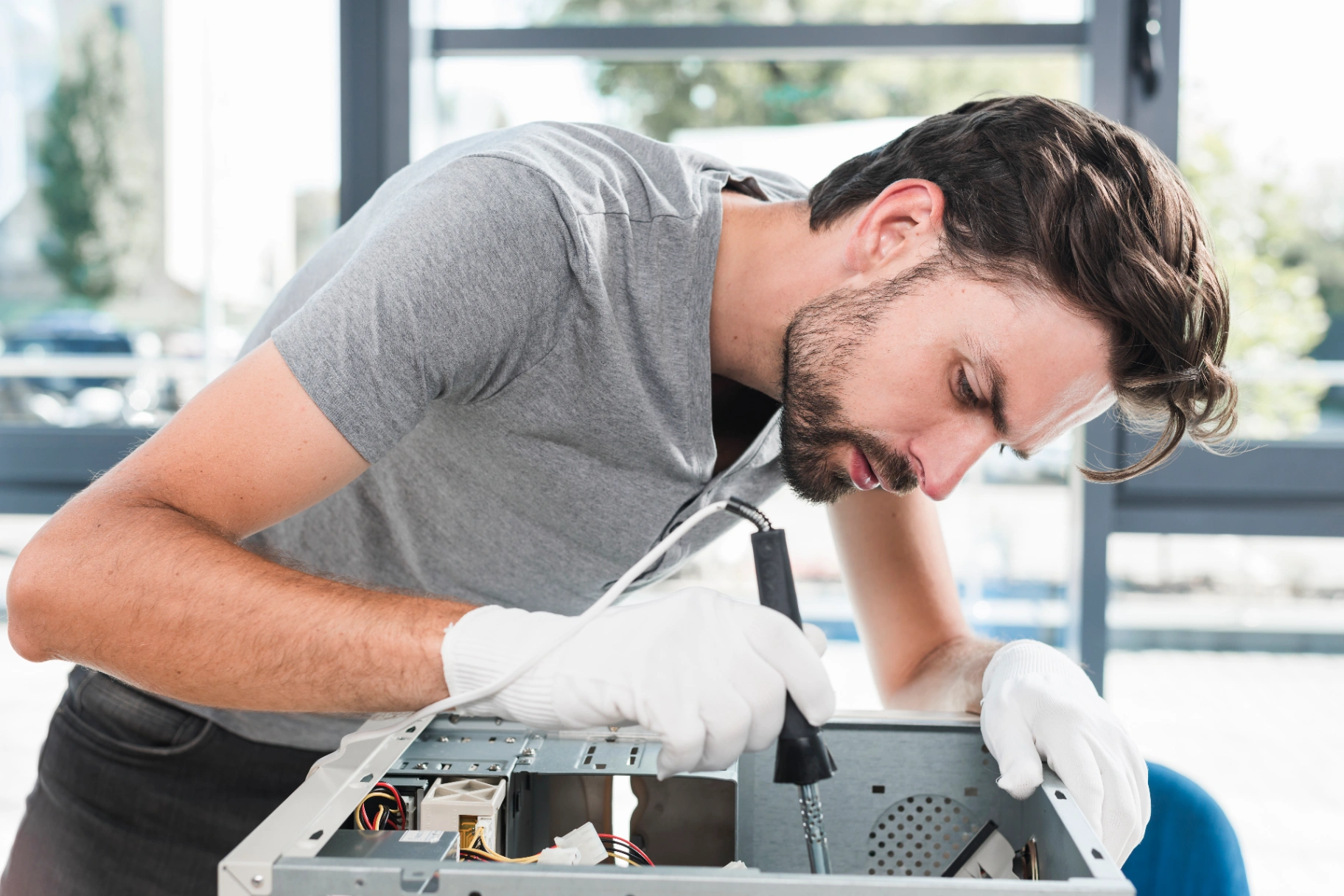Tips for Preventing Hardware Failures: Extend Your Computer's Lifespan
Avoiding hardware failures is crucial for ensuring your computer's reliability and longevity. Implem
Created by: Daniel Ogunsemowo /
Vetted by:
Otse Amorighoye

Introduction
Avoiding hardware failures is crucial for ensuring your computer's reliability and longevity. Implementing proactive computer maintenance tips can help prevent costly repairs and extend your computer’s lifespan. This article offers practical advice to keep your computer running smoothly, minimizing the causes of hardware problems.
1. Don't Let Your Computer Suffocate: Improve Airflow
Importance of Ventilation
Keeping your computer cool is essential to prevent overheating, which can lead to serious hardware failures.
Actionable Steps
Ensure that nothing blocks the air vents of your computer. Keep at least a few inches of space around each vent to promote good air circulation.
Regularly clean the vents and consider adding external fans or a cooling pad for laptops to enhance airflow.
2. Know Your Temps: How to Prevent Hardware Meltdowns
Significance of Monitoring Temperatures
Overheating can significantly shorten the life of your hardware components.
Actionable Steps
Use temperature monitoring software to keep tabs on your system's critical components. Programs like HWMonitor or Core Temp provide real-time temperature data.
If temperatures rise above normal thresholds, improve your cooling setup or seek professional help to address potential hardware issues.
For more detailed insights, check out Essential Tools for Hardware Diagnostics: How to Maintain and Extend Your Computer’s Lifespan.
3. Stay Updated: Maximize Performance and Stability
Impact of Software Management
Keeping your software up-to-date is key to preventing hardware overloads and failures.
Actionable Steps
Regularly update your operating system and hardware drivers to ensure they are functioning optimally and efficiently.
Remove or disable unnecessary programs that consume excessive resources, freeing up your system to operate more reliably.
Learn more about the importance of updates in Why Are Operating System Updates Important?.
4. Safeguard Your Power Supply: Protect Against Surges
Threat from Electrical Issues
Power surges can quickly damage sensitive components, leading to unexpected hardware failure.
Actionable Steps
Connect your computer to a surge protector to shield it from sudden voltage changes.
For added security, especially in areas prone to power fluctuations, use an Uninterruptible Power Supply (UPS) to provide backup power and voltage regulation.
5. Regular Checkups: Catch Issues Before They Escalate
Necessity for Routine Maintenance
Just like any valuable equipment, your computer benefits from regular check-ups.
Actionable Steps
Conduct periodic diagnostic tests to assess the health of your hardware. Tools like CrystalDiskInfo for hard drives and MemTest86 for RAM are invaluable.
Pay attention to warning signs such as system instability, unusual noises, or frequent crashes, and address them promptly.
For a deeper dive into backup strategies, read Choosing the Right Data Backup Solution: A Comprehensive Guide for Business Continuity.
6. Gentle Handling: Avoid Physical Damage
Risks from Mishandling
Physical shocks and improper handling can cause immediate hardware damage.
Actionable Steps
Always move your computer gently. Secure laptops in padded cases and ensure desktops are on stable surfaces away from foot traffic.
Avoid opening the computer case frequently, and when you do, follow static electricity precautions to prevent damaging sensitive parts.
7. Backup and Redundancy: Your Safety Net
Importance of Data Backups
Redundant systems can save you from data loss during hardware failures.
Actionable Steps
Consider setting up a RAID system if you store critical data, which can keep your data intact even if one drive fails.
Regularly back up your data to an external hard drive or cloud storage to ensure you can restore your system quickly after a hardware failure.
Explore various data backup methods in Different Methods of Data Backup: Choosing the Right Strategy for Your Needs.
8. Educate Yourself: Understanding Your Hardware
Benefit of Knowledge
Knowing how your computer works can help you identify and prevent potential issues.
Actionable Steps
Take the time to learn about the basic components of your computer and how they work together. Resources like online tutorials or local workshops can be helpful.
If you're unsure about a maintenance task, consult with or hire a professional to avoid making costly mistakes.
Conclusion
Preventive maintenance is key to extending the life of your computer and avoiding expensive hardware repairs. By following these simple steps, you can ensure your hardware remains in top condition and continues to serve your needs effectively. Whether you’re a seasoned tech enthusiast or a newcomer, these tips are designed to help you keep your system running at its best. For more IT support and maintenance tips, explore our Desktop Support Service.